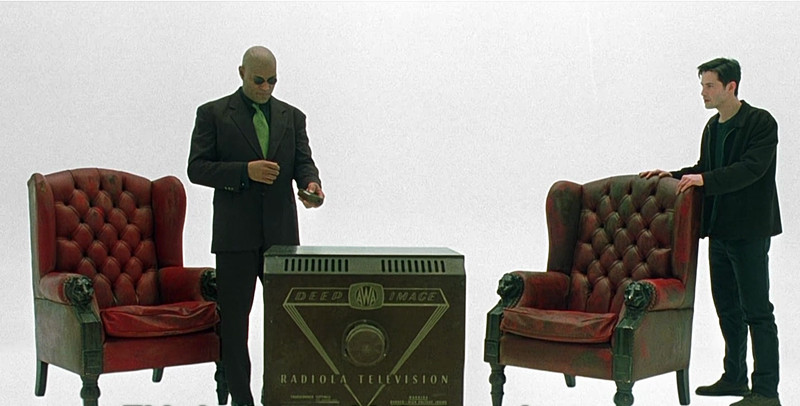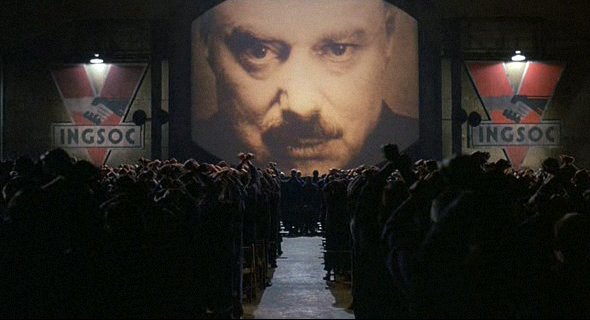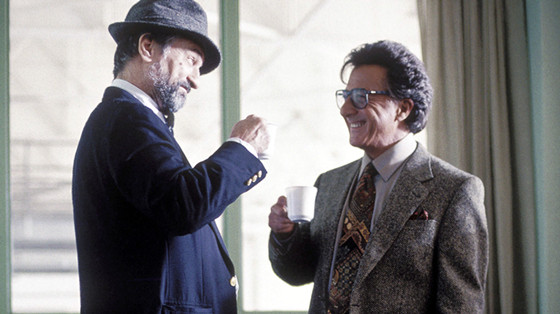4. The Boys from Brazil (1978, Franklin J. Schaffer)

To be able to appreciate a conspiracy theory, you must be able to put yourselves in the believers’ shoes. Once you get the hang of it, you realize that mimicking someone else is a rewarding experience. It teaches you that there is a distance between who you are and who you claim to be regardless of what position you take. In other words, nobody is hundred percent good or evil. When you understand this, then you can take any presupposition, craft a fake personality and experience an imaginary world very easily.
Racism has created and continues to create some of the most elaborate imaginary worlds. Not only that however, racism is also the building block of any conspiracy. What is racism at its core? Is it hatred for a particular group of people, an outdated way of government, a pragmatic approach because of the declining economy or just a psychotic break?
None of the above. When you take a look at Plato’s The Republic (380 BC), you’ll read about a disagreement about the definition of justice in the first book. It continues for the next three books as well. The dialogue between the two parties becomes stranger after Socrates’ answer to the proposed question, because while his answer is obvious and acceptable, those who asked the question cannot accept it as a valid answer. Since we cannot dwell on the subject in great detail here, let’s get to the point immediately.
Those who asked the question hold a belief that any behavior, attitude or character trait exists because of the host’s particular properties (in today’s words genes). Therefore a guy from Sparta has to be a soldier because he is aggressive and muscular, and the guy from Athens has to be the philosopher because he is automatically moral and smart. What’s more, Socrates even introduces a concept where every nation has to be ruled by this Athenian king.
In this movie, we are following the events happening because of the same claim. And, the way to crack this conspiracy comes from rejecting the absolute superiority of a particular race, nation or an interest group. In Turkish there is a saying that goes something like this: “Everyone will be judged on his/her own.” What it means is your being good or evil has nothing to do with your personal network and business associations. You can always change whatever you were born into.
5. The Matrix (1999, The Wachowskis)

Apart from the well-choreographed fighting scenes, this movie reminds us another point made by Socrates in Plato’s The Republic (514a–520a, 380 BC). Remember the cave allegory? It proposes that depending on our ability to see, we craft worlds which may have nothing to do with reality. In other words, we try to make sense of things even if we don’t have enough information. We cannot rest until we somehow come up with an explanation.
The scientific method is a fix for this defect. It aims to differentiate the best explanation from the rest. However, very few people tend to use scientific method on a day-to-day basis. It’s not that we cannot do it. It’s because we don’t really care. Because of some strange reason, we enjoy living in this ship of fools.
That’s a critical point for us, because what seems like a conspiracy to some may be viewed completely innocent by others. If your imagination is polluted by images or symbols (Meister Eckhart), then you cannot see. The only one who can see through lies and bring an end to the diminished existence of human beings is a person who is devoid of images or symbols, who is free from the everydayness of our lives, in other words, someone who feels at home anywhere in any circumstance (Meister Eckhart).
Consider Cypher. He is aware of the truth, but he can no longer go on. He is tired of the ugliness of the truth. When you are in such a state, you become the ideal receptacle for a conspiracy theory or an imaginary world, for that matter. Even if you have the greatest mind and the moral fiber that goes with it, the flesh can take only so much. You cannot pursue a homeless existence forever. Yet, the only home that exists is among other people, not in the labyrinths of our minds or up in the sky.
6. Nineteen Eighty-Four (1984, Michael Radford)

A lot of people find this movie inferior to the book which is one of my favorites. I don’t think this movie is inferior. Just like always, the visuals may be different from the ones you have envisioned while reading the book or when you dozed off, for that matter. Enough about that, however. Let’s close our ears to the propaganda and watch the people… closely.
Winston Smith knows that it is impossible for him to avoid the government officials completely. He knows the moment thought crime happens, this act itself kills him not its possible consequences. In other words, he no longer belongs to that world. He becomes completely unintelligible to the rest of the inhabitants of that world as if he doesn’t exist anymore. However, he cannot stop doing what he is doing. Because, otherwise his life becomes meaningless and he turns into just another gear in the machine. So, he desperately revolts against the machine.
When not viewed as a citizen of an autocratic society, he portrays another profile: someone who is aware of his condition. Keep that thought in your mind and consider the age old story about Adam and Eve. You know, that story about the Tree of Knowledge. It didn’t seem quite right when you heard it for the first time now, did it? That’s the feeling you’ll get when you are lost in someone else’s story.
Since what we are doing here is playing with words just to see whether something worthwhile comes out, let’s give it another try, shall we? Assume that this movie makes sense in the light of what we have just said. Those who can accept made up notions of reality for a meaningful existence are not only ignorant, but also they are what is really intended by… nature. I mean, who’s kidding who? Because when we focus on the individual, human existence is bounded by a time frame that is inadequate to provide any kind of meaning.
You have your ups and downs and when you are no longer a sperm or an egg donor, you are gone forever. “We come to this world kicking and screaming and we’ll leave it the same way.” (Altered States, Ken Russell, 1980). So, maybe it is really better to be asleep… you know, dream a better world and take a part in it even if it’s not real. Some say those who are awakened from such dreams can never go back home and will be forever lost (Vuslat, 1921, Yahya Kemal Beyatli).
Imagine you are the big brother. What was his problem in the first place? Better yet, remember Pink in Alan Parker’s movie The Wall (1982). Remember his transformation into a fascist leader? When meaninglessness catches up on you, you can never fool yourself again. Since you have teared the membrane of your world, you can no longer maintain it. The only way to feel at home is to come up with crazy schemes that will attract a lot of disciples.
When you see thousands after thousands submitting to what you have made up out of desperation, you too can fool yourselves and forget about the secret about this dream’s inception. And, there will be no escape. You’ll be condemned to live in that world. That wasn’t the only choice, on the other hand. You could have chosen to be dead to that world and be born into a much larger one. That’s the one Smith is looking for.
The meaning Smith has lost and we may be looking for does not come from heavens and cannot be found in scripture. It is right there among those who remain to be human. When a humane life is no longer possible regardless of its manifestations being desirable or detestable, we can never find it. As Heidegger points out “it feels like sand escaping through our fingers” and we cannot do anything about it (Being and Time, 1927).
Again “it can only be found in time dealing with people with care and concern” (John M. Berry). Care and concern is not something that comes with satisfying beggars, mind you. Overdoing ordinary things that cannot change the way things are will not give you access to a deeper level of existence. It will only keep you busy with the expectation that something worthwhile will happen someday. But, it never does.
And, when you find it, you don’t actually find it, just the need to find it disappears. If you think there’s a door close by and the possibility of opening it excites you because of the secret treasures therein, know that you’ll never pass through such a door. That’s why you never see children looking for it. Even if they are naïve, they are wiser than us in that regard.
When they grow up and learn to distinguish what’s good from what’s evil, in other words realize that they have options, they too will fall from grace. What may seem to you as a religious way of living, has nothing to do with religion if you ask me. It’s much older.
Once again, as Heidegger points out, “there is no difference between creating and destroying. They both come from the same desire, the desire to matter.” When you let go of that desire, all of a sudden, you begin to feel good as if some secret knowledge has been given to you. It’s the other way around though, you just gave up to be a man/woman.
7. Wag the Dog (1997, Barry Levinson)

Some say Turkish culture is quite different from the European culture, but it has intriguing similarities when it comes to the culture of the United States. How so? These nations are very much alike in two aspects. First, they have the capacity to believe in every prosperous claim. In fact, they feed on it. They need it daily to be able to continue to live.
Secondly, as you might have guessed, they both have the ability to bullshit even better than the Jewish comedians. In the case of the Turkish guys, you wouldn’t believe the speed, enthusiasm and creativity. Just ask a question. Any Turkish guy wouldn’t flinch for an instant and tell you his opinions about something he (Well, as you might have guessed, women are smarter) has no clue.
Watching a movie which has been considered as an exaggeration made me realize how normal it is when it comes to my own culture. Perhaps, this is why we Turks are better suited to these post-modern times, better than everybody else. After we have severed our ties with the Ottoman Empire, we have been living like Borgs (Star Trek) and assimilating any cultural trait on the way. Since we are accustomed to the manufactured reality so much, we began loving it, wanting more of it and making it even… well, crazier way before these post-modernist philosophers came out.
A famous Turkish intelligence officer, economist and author, Mahir Kaynak (1934 – 2015) used to say that one can only find the root causes, if he/she analyses the results of the apparent actions first. “When you analyze the results” he used to say, “You should always try to figure out who these results help out. Whose benefit is it?” This approach has an immediate corollary in computer science. It’s called a use case.
When you know the role of the person who’s going to use a particular system, you can then, find out his/her goal. That goal is the use case. Once you have figured out the use case (i.e. depositing money using an ATM), then you can group activities that otherwise look irrelevant or not related to one another.
Kaynak went a little bit further by stating that methods were more important than the domain they were applied to (Truth and Method, Hans-Georg Gadamer, 1960). A delusional mind can be influenced by certain topics or keywords very easily. But, a trained professional has this cold, somewhat detached attitude, so that he/she will able to do his/her job first even in chaotic environments.
Then, after everything’s over, he/she can go ahead and express his/her feelings, not a moment before. This is how 911 personnel are trained in the United States. So, in a bloody accident, before they shed a single tear, they can save lives. When I first saw this, I have come to the shocking realization that as a Turk I had the same ability without the need for training.